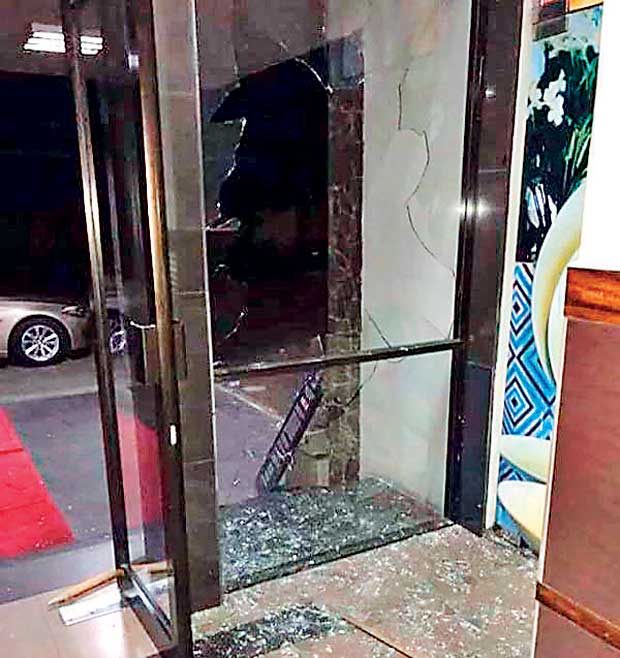Reply To:
Name - Reply Comment
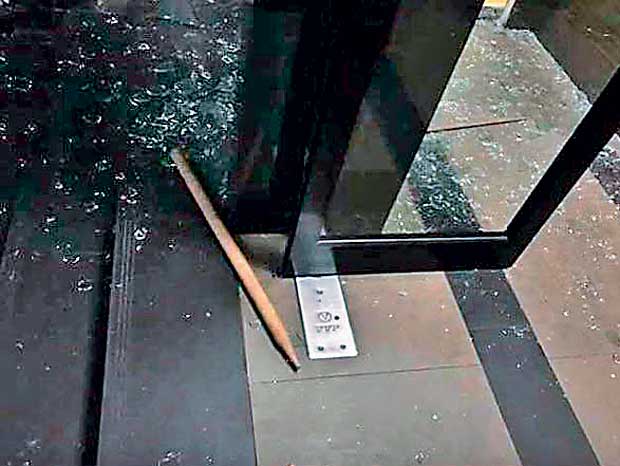
A mob allegedly linked to President Maithripala Sirisena’s son Daham is said to have gone on rampage at a leading night club in Colombo after they were denied entry on the early hours of Saturday. An employee of the club who received head injuries is being treated at the Colombo General Hospital. Police say they are investigating.
The latest incident is disappointing, not for its gravity -- many get into bar fights and that is a malady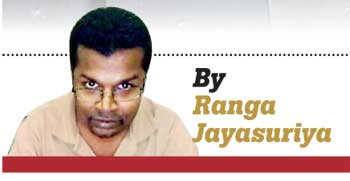 as ancient as the invention of booze, though one would expect better behaviour from the sons and daughters of public figures. The latest affair is disappointing for the current Government, and the President himself has, with a seeming genuineness, been trying to make a clear break from the past, when the abuse of power was itself a pastime of the rich and the politically powerful.
as ancient as the invention of booze, though one would expect better behaviour from the sons and daughters of public figures. The latest affair is disappointing for the current Government, and the President himself has, with a seeming genuineness, been trying to make a clear break from the past, when the abuse of power was itself a pastime of the rich and the politically powerful.
However, it is not easy to make that clear break and worse still his own son is now implicated in reenacting the past.
The acid test for the Government and the President himself would be how they respond to this. They themselves could reenact the past; cover up the incident, make the police tell the courts that CCTV footage is lost and no evidence found and still better, try to prove the suspects were at a pirith puja at the time the so-called incident happened. Gag the media or it can let the police investigate the incident freely, file charges if there are any, and let the rule of law take its own course.
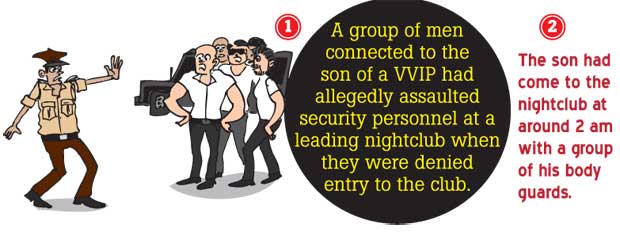
No matter the course of action the Government chooses to follow, it will set a precedent; the former, which would foster further lawlessness and the latter, which would rein in the same.
The ex-president chose to ignore the abuses of power by the members of his own family and a long list of their coterie. Such a leeway given to them, begot further lawlessness. Serial offenders such as Mervyn Silva’s prodigal son Malaka terrorized the patrons of night clubs. The ex-president’s goons raped a foreign woman and killed her fiancé in Beliatta. His youthful son, Rohitha assaulted a Rugby referee at a club match, the media was told not to report the incident. However, at the end, ex-president Rajapaska himself became a hostage of the antics of the people around him; public wrath was directed at him for his failure to hold his goons accountable. No amount of cover up could help hiding the ugly details of abuse of power; the egregious impunity with which they took place was an open secret and now being retold in the court; some such revelations are as mind boggling as the abdication of the alleged ownership by Basil Rajapaksa of a luxurious house built on a 16-acre block of land.
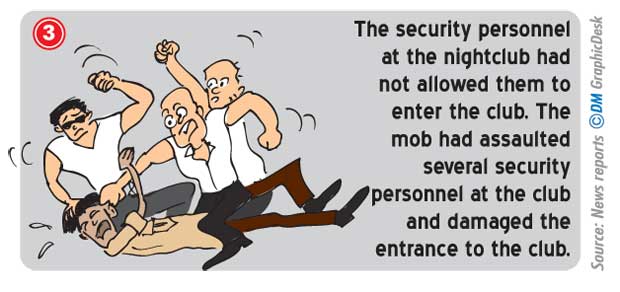
Why VVIP brats get into antics is partly due to the sense of entitlement. They are entitled to some privileges, due to the simple fact that their fathers and mothers being presidents, ministers and military top brass while their well-being is tied to the peace in mind of the people who govern the country often though, those privileges are prone to abuse. When countries become civilized, they get rid of their feudal sort of those entitlements, keeping only the most needed.
However, most countries at our social and economic levels find it hard to define those parameters and that failure in general contributes to the overall breaking down of the rule of law and the creation of two-tier societies. That is partly a cultural problem; societies still affected by the residual effects of feudalism, and shielded from the exposure to the tarns-formative effect of market capitalism are more likely to revere the ‘big man’, who is a law unto himself. In that social milieu, ‘a big man’s’ merit is measured by the number of acolytes and by bodyguards who accompany him.
However, this is more of an institutional problem. When the powers-that-be are not restrained by the law, there is nothing that can stop them. On the other hand, they would not amend their acts, until the law proves itself that it is capable of putting them in their place. That is a catch-22 situation in countries where the rule of law has been a hostage of their native political leaders.
Surely, it was not right to smash a nightclub. However, the problem is not this one particular incident per se, which at the rate things happened in this country is trifling. More important is how it would reflect on the broader question of law and order. That would depend on the Government’s course of action.
